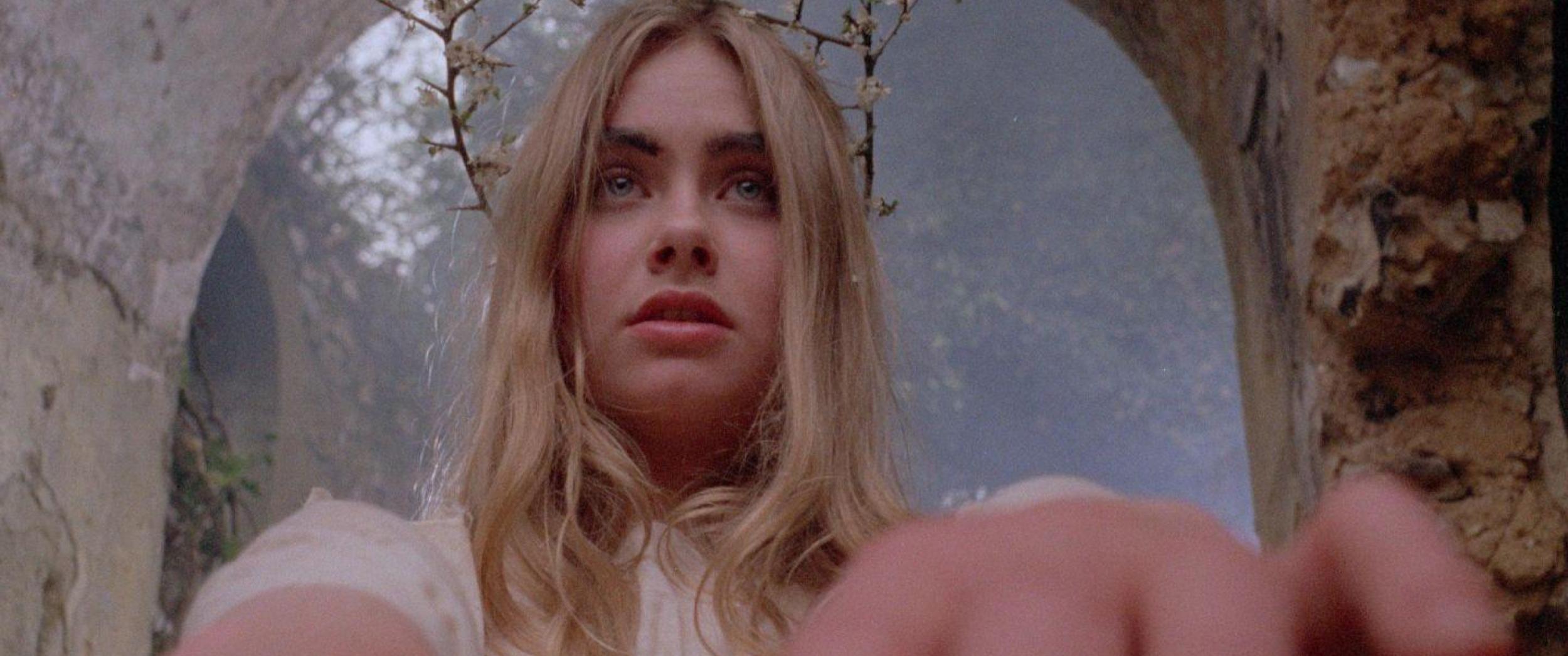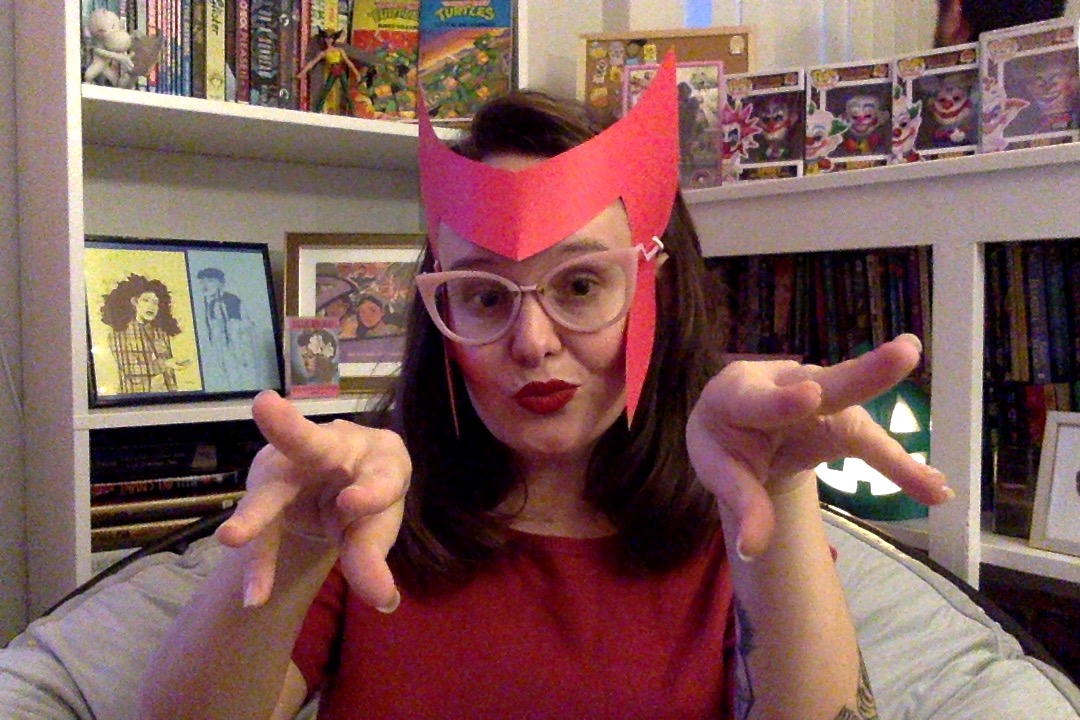What to Watch Verdict
An impressively eclectic and enjoyable film that never shies away from the problems of the subgenre and does transgressive work to expand our understanding of it.
Pros
- +
👻 Enjoyably spooky.
- +
👻 Expansive cast of talking heads.
- +
👻 Educational even for fans who know their stuff.
- +
👻 A truly deep dive into the history and cultural context that shaped the subgenre.
- +
👻 Winnie Cheung's editing makes this a truly engaging film even at three plus hours.
- +
👻 Jim Williams' music choices always elevate the film making it an immersive experience.
Cons
- -
👻 Might be too long for those who aren't die-hard horror fans.
Woodlands Dark and Days Bewitched is part of our SXSW 2021 coverage. You can find all of our reviews here.
Folk Horror is having somewhat of a resurgence. Films like Ari Aster's Midsommar, Mattie Do's Dearest Sister, and Robert Eggers' The Witch, have reignited the cinematic passion for the folkloric and earthy tales giving Folk Horror a new life in the modern age. Kier-La Janisse's Woodlands Dark and Days Bewitched dives into the subgenre with unbridled passion and scholarly attention, crafting an atmospheric and dense history that is more interested with building out our idea of what Folk Horror can be than defining it in any certain terms. That's in no way a critique, though. With a slick use of talking heads, archival interviews, and brilliant footage from the films, this is an immersive, educational, and entertaining documentary that never loses its footing even as it hits the three hour mark.
From the earliest and most obvious entries into the cinematic canon like The Witchfinder General and The Wicker Man to lesser known British cult flicks like The Blood on Satan's Claw, I Start Counting, Requiem for a Village, and Psychomania, this is a guidebook for anyone who wants to know more about the subgenre. And that's just scratching the surface of the films that are dissected and discussed here. It's not just movies either as Janisse explores the literary tradition of authors like MR. James who shaped the stories before the name Folk Horror had ever been uttered. This dedication to drawing a line between these eclectic tales which span centuries is at the heart of what makes it so immersive and interesting. Even as a huge fan of Folk Horror and someone who grew up with grandparents who hailed from the home of the first recorded witch trial, there was plenty here I hadn't known or connected. But just because it's got lessons to teach it doesn't mean Woodlands Dark and Days Bewitched is overly academic or dry. In fact, it's far, far from it.
Along with editors Winnie Cheung and Benjamin Shearn, and music director Jim Williams, Janisse weaves a truly atmospheric ride through Folk Horror history. Split between six chapters which each focus on a different signifier or question around Folk Horror, the doc never strays from feeling like its own unique entry into the Folk Horror canon. That's thanks to the creative team's impressive use of b-roll and clips from some of the featured films. If three hours sounds like it might be too long for you, never fear as this aspect will draw you in and make you feel like you're experiencing a little horror film alongside your learning. Williams' music choices are powerful enough that more than once the bass of the strings or chilling call of a folk singer raised the hairs on the back of my neck even in broad daylight.
One of the most interesting things about Woodlands Dark and Days Bewitched is hearing so many different voices exploring their own readings around the genre. Early on we hear about how the anxiety and horror of the Vietnam war shaped The Witchfinder General, something I never would have put together. During the conversation about witches there's plenty of interesting conversations about what the Witch means in pop culture and its role as both representation of male fear and female power. It was refreshing that the film doesn't shy away from the racism of some Folk Horror or horror in general, and there's a particularly great segment talking about the ideas of land ownership and the need for Indigenous horror filmmakers, as well as looking at the racist representation of Indigenous people in horror. The conversation also explores the notions of Christian fanaticism, isolation, and how the puritanical traditions of the US shape Folk Horror as much as its rural British origins.
Janisse has collected an impressive roster of creators, critics, and fans--and often many fit into more than one of those categories--including Samm Deighan, Mattie Do, Piers Haggard, Kay Ellinger, Alexandra Heller-Nicholas, Lawrence Gordon Clark, Alice Lowe, Robert Eggers, Jonathan Rigby, Ian Ogilvy, Mitch Horowitz, Maisha Wester, Mariano Baino, Briony Kidd, and Robin Hardy. The wide spectrum of voices adds to the vast and all-encompassing feeling the documentary leaves you with. A personal and political exploration but that has no singular viewpoint and instead offers an array of experiences and backgrounds.
There's so much to be dissected and talked about here too, I would happily watch an extended version of this where each of the chapters was an hour long and people could expand on the insightful points they make and tales they tell. In particular, I could have watched an entire film just on the enlightening and brilliant conversations around the connections between the rural South, Folk Horror, Southern Gothic, Blackness in horror, and representations of Voodoo. Paired with the enlightening looks at Japanese folkloric traditions, Indigenous Folk Horror in Australia, and how colonialism shaped horror in Brazil, there's a transgressive dedication here to expanding the viewer's idea of what Folk Horror is. That becomes more obvious as we move towards the film's finish, which makes Janisse's scholarly eye feel like a knife-smart way of convincing possible narrow minded folks of the seriousness of the genre they love before really digging into and expanding the notion of what films fit under the Folk Horror banner.
The latest updates, reviews and unmissable series to watch and more!
In case you weren't clear, I'm a huge fan of Janisse's creation. There's so much to enjoy here as it peels back layer upon layer of not only the stories that shape Folk Horror but also how those stories shape society and the cyclical nature of art, creation, and imitation. It feels vital to have a Folk Horror documentary that includes Ganja and Hess and Candyman as well as the same ten British films that are usually held in the conversation. In a way, the very nature of the ever changing definition of Folk Horror brings about the most powerful parts of Woodlands Dark and Days Bewitched. Some may feel that broadness of conversation leaves the documentary lacking a clear thesis, but I found it to be the thing that makes it so necessary. This is a film in conversation with the stories that came before it and that is more interested in continuing that conversation and expanding it than defining anything itself.
Rosie Knight is an Eisner-winning journalist and author who's been writing professionally since 2005. Her career has taken her around the world and, although she hails from London, she currently resides in Los Angeles where she writes full time. She began as a professional poet but transitioned into journalism, starting at the Eisner-winning WWAC in 2016. Since then she has written over 1500 articles for digital media sites including What to Watch, Nerdist, IGN, The Hollywood Reporter, Esquire, Den of Geek, DC Comics, /Film, BuzzFeed, and Refinery29. She also writes comics including The Haunted High Tops and Cougar and Cub. When she's not writing she spends far too much time watching horror movies and Hallmark films.


